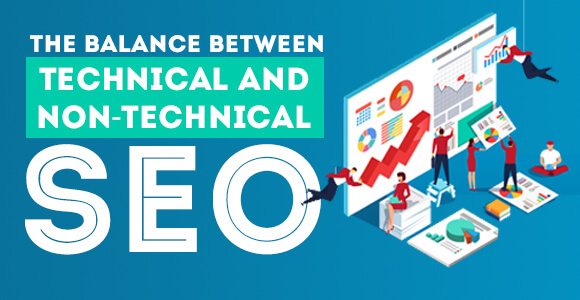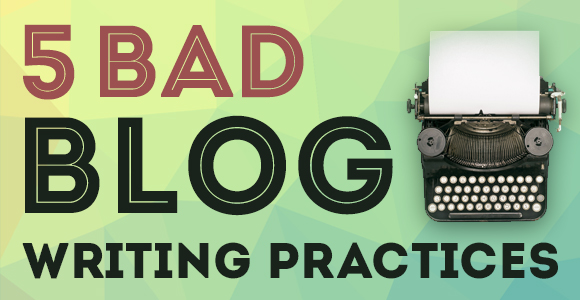Back in the days, SEO was mostly about coding. Technical SEO involved the optimization, manipulation even, of code, metadata, and link profiles, for the sake of achieving better results. And this hasn’t changed all that much. But today’s article is dedicated to a more balanced approach to the technical and non-technical ways of website optimization.
“Everything in life… has to have balance. “ – Donna Karan
It’s the same when it comes to SEO…
In the past few years, black hat tactics have become dangerous and less effective due to Google updates; they are also less popular right now. This is why SEOs had to become more creative and non-technical tactics came to be. They are designed with the value and relevance of content in mind.
Technical and non-technical tactics should work in harmony since both are important for the excellent condition of your overall site optimization. The technical part is the framework on which to build great content.
4 Tips on Balancing Your SEO
#1 Know the part that technical SEO plays in your organization
What I see in many campaigns today is that technical SEO is completely separated from development. The departments SEOs work with are:
- The IT team managing the storage and reception of important data;
- Web development team;
- Non-technical SEOs (like link builders and content marketers).
Technical SEOs are kind of mediators between these fundamentally different teams. However, there is a second part of their job, and that is the implementation and adding structure and optimization which help the engines retrieve, index, and rank content.
For all these reasons, it is important that a technical SEO plays a role in the process of planning. SEO and content writing service providers have to work together to set shared goals, be a cohesive unit, measure, analyze, and adapt continually.
#2. Balance your on-page & off-page optimization
On and off-site optimization uses strategies that are usually quite different in the benefits they offer. Nevertheless, they both affect the content performance in dramatic ways.
On-page:
- Your site’s structure, design, and hierarchy
- Title tags and meta descriptions
- Coding errors
- Crawl and index-ability
- Internal linking
- Sitemaps
- Page content
- Site speed
- Mobile-friendliness
Off-page:
- Social content and sharing
- Influencer content
- Articles and guest blogs
- Inbound links
#3. Define the tasks of each kind of SEO
For most responsibilities, it is obvious to which team they belong. However, there are such tasks that can cause confusion or even get missed entirely if you don’t define who will be responsible for their completion. This may end up in site problems of a devastating impact on the experience of the users, and therefore – on your sales. Organic search drives on average 60% of website traffic, and chances are that it’s your largest channel. It is, therefore, worth it to get it right.
In the combined effort of technical and non-technical, scientific and creative is the key to success. This holistic approach is trending and it is the solution to many issues.
#4. Work SEO into your content workflow
How to optimize images? Which types of sources to approve as citations and for external linking, and which to avoid? When and how should H1, H2 and H3 headings be used? Who creates title tags, and what are the rules for doing this? Who are your readers, and what do you assume is their knowledge of your industry? (This can help keyword selection.)
Document all this to ensure a quick reference baseline for your content writing service provider. This will provide your creative team with a resource that is built with the help of technical SEO and will instruct the process of content creation. When this optimized content is placed into a framework that is technically sound and managed by your technical SEO team, it will be ready to be promoted by your content marketers. An unbeatable combination.
Technical & Non-Technical SEO Tactics Work Hand in Glove
In conclusion, I can say that even though technical and non-technical SEO strategies and tactics are quite different, it is very important that the different teams that handle them find a way to work together.
Search engine results pages (SERP) are increasingly competitive, and the consumers are increasingly intelligent and informed. Therefore, your content also has to be intelligent, which can be achieved by the marriage of technical SEO and content marketing.
SEO, however, is not for everyone, be it technical or non-technical. The team of 411Writers can help with the non-technical part and namely with content. As for the technical part, I’ll be happy to answer any questions in the comment section below.







